Photographs: B Mathur/Reuters B Raman
No dossier, no amount of dramatic TV debates will help in countering Pakistan's use of terrorism against India. Only an effective and deniable deterrent power and in the form of our capability to carry out deniable covert actions against terrorists based in Pakistani territory can help.
As expected, the two-day talks between Foreign Secretary Ranjan Mathai and his Pakistani counterpart Jalil Abbas Jilani concluded at New Delhi on Wednesday with an aggravation of the slanging match between the two countries on the question of Pakistani inaction against those involved from their territory in the planning and execution of the 26/11 terrorist strikes in Mumbai.
India already had a large volume of irrefutable evidence against elements in Pakistan, which were involved in these strikes. These elements consisted of the leadership of the Lashkar-e-Tayiba, one Indian Muslim ( Abu Jundal) who had joined the LET in Pakistan, and some officers of Pakistan's Inter-Services Intelligence, who had directly or indirectly helped the LET in carrying out the terrorist strikes.
Fresh additions to this evidence have now come from the interrogation of Zabiuddin Ansari aka Abu Jundal aka Abu Jindal aka Abu Hamza, the Indian who was one of the fellow-conspirators along with the LET leaders and the ISI officers. After the terrorist strikes, Jundal had taken up residence in Saudi Arabia posing as a Pakistani national. He identified himself as Riasat Ali.
...
Pak has disputed India's claims on JuD-LeT links
Image: JuD chief Hafiz SaeedPhotographs: Reuters
Jundal was arrested by the Saudi authorities from his hideout in Saudi Arabia last year and was handed over to the Indian police last month after India had established on the basis of DNA tests that Riasat Ali, the so-called Pakistani national, was none other than Zabiuddin Ansari, the Indian national, who had joined the LET and participated in the 26/11 strikes.
The details of the conspiracy given by him have strengthened the case against seven leading cadres of the LET whom the Pakistani authorities had claimed to have arrested in a statement made by their then Interior Minister Rehman Malik on February 12, 2009, for their involvement in the strikes.
Pakistan's tactics in this case has been three-fold. Firstly, to admit that the conspiracy was hatched by some members of the LET based in Pakistan and carried out with a promise to prosecute them. Secondly, to deny that Hafiz Mohammad Saeed, the amir of the Jamat-ud-Dawa had any role in the conspiracy.
They dispute India's contention that the JUD is the political wing of the LET and insist that the JUD has nothing to do with the LET. Thirdly, to deny the involvement of the ISI as an institution or any of its officers in the conspiracy.
Pak's explanation on Jundal arrest not satisfatory
Image: 26/11 handler Abu JundalIn the wake of their admission of the role of seven members of the LET in the conspiracy, they have filed a chargesheet against them before an anti-terrorism court in Pakistan. It is almost three years now since the chargesheet was filed, but the trial has not even started.
The case is being delayed due to frequent transfers of the judge and frequent adjournments given by the judge in disregard of the provisions of Pakistan's anti-terrorism laws which lay down that no adjournments should be given in terrorism cases and that the trial should be held on a day-to-day basis in order to complete it quickly.
This has not been done by the Pakistani authorities who have been dragging their feet, under some pretext or the other, and avoiding a trial. In the meanwhile, there have been source reports that the arrested cadres of the LET have been active in guiding the activities of the outfit in Jammu & Kashmir from their jail.
The Pakistani authorities have not given a satisfactory explanation to the question as to how Jundal, whom they had arrested and chargesheeted, managed to go to Saudi Arabia with a Pakistani passport and resume his activities on behalf of the LET even while the trial is on.
On the basis of the additional evidence obtained from Jundal, the Indian government has renewed pressure on Pakistan to expedite the trial of the LET cadres in their custody. They have been showing no seriousness in the matter and continue to drag their feet.
Insia should seek UNSC intervention in Jundal case
Image: The burning Taj Mahal Hotel during the 26/11 attacks in MumbaiIndia should not allow the matter to rest there. It should continue to step up pressure on Pakistan for an early conclusion of the trial.
In 26/11 strikes, not only Indian nationals but also nationals of other countries, including the United States and Israel, were killed. They too have a strong interest in ensuring that the trial was quickly completed and sentence pronounced.
India should share with those countries the details of the disclosures of Jundal and find ways of associating their investigators with the interrogation. We should also draw the attention of the United Nations Security Council monitoring committee to the non-compliance by Pakistan of the provisions of the UN Security Council Resolution No 1373 passed by the UNSC immediately after the 9/11 terrorist strikes in the US calling on the member-countries, inter alia, not to allow terrorists to operate from safe haven in their territory.
Thus, India's follow-up action on the Jundal disclosures has to be bilateral by way of stepped-up pressure on Pakistan as well as multilateral by way of pressure on the international community and action in the monitoring committee of the UNSC.
Pakistan continues to deny the involvement of Saeed. He was initially detained for some weeks, but ordered to be released by a court on the ground that there was no evidence against him.
Problem arises with involvement of ISI as an institution
Image: The ISI logoThe US has recently announced a heavy cash reward for anyone who provides evidence that could lead to the arrest and prosecution of Saeed.
Jundal must be made aware of this reward offer and told that his family in India could be eligible for this if he co-operates in the collection of evidence regarding the personal involvement of Saeed in the 26/11 strikes. The US investigators should also be encouraged to join in the interrogation of Jundal on the role of Saeed.
The pressure for action against Saeed should be kept up bilaterally as well as in association with the US government and the relatives of the US nationals killed by the LeT.
The problem arises with regard to the involvement of the ISI as an institution and some ISI officers in helping the LeT in carrying out the terrorist strikes. Except the US, no other country has any law providing for action against state-sponsors of international terrorism.
When the A B Vajpayee-led National Democratic Alliance government came to office in 1998, it had promised to issue a White Paper on Pakistan's sponsorship of terrorism against India and to enact necessary laws in this matter. As Vajpayee got interested in peace talks -- initially with Nawaz Sharif, the Pakistani prime minister in 1999, and subsequently with Gen Pervez Musharraf, the NDA government played down this promise, which was never implemented.
A White Paper was not issued even though the intelligence agencies had prepared a draft.
Naive to think Pak will accept Headley, Jundal's disclosures
Image: David Coleman HeadleyThere were occasions in the past -- as after the March 1993 strikes in Mumbai -- when we were able to get very strong evidence against the ISI. Despite this, we were not able to act against Pakistan on this issue since the US and other members of the international community were not prepared to treat Pakistan on par with East Germany, Cuba, Iraq, Iran, Sudan and North Korea in respect of action for the involvement of their intelligence agencies in acts of terrorism.
It would be naive on our part to think that the State of Pakistan would incriminate itself and its intelligence agencies by accepting the correctness of the disclosures of David Coleman Headley of the Chicago cell of the LeT and now Abu Jundal in this matter.
Countries which are the targets of terrorism sponsored by the intelligence agencies of other countries have the diplomatic and operational options. Only the US and France were able to use the diplomatic option against Libya in response to the role of the Libyan intelligence in the blowing-up of their civilian aircraft. No other country in the world has ever succeeded in dealing with the problem of state-sponsored terrorism through the diplomatic option alone.
India does not have the diplomatic clout either with Pakistan or with the international community. Hence, it is unlikely to succeed.
Israel too is repeatedly the target of state-sponsored terrorism. It too does not have the diplomatic option. It, therefore, relies on the operational option provided by its intelligence agencies. It uses the covert action capability of its intelligence agencies as a deniable deterrent power to deter acts of terrorism mounted against Israel from other countries. This deniable deterrent power consists of the ability to carry out decapitation strikes against anti-Israeli foreign terrorists operating from sanctuaries in foreign countries.
Effective deniable deterrent power can help in action against Pak
Image: Ajmal Kasab at CST during the 26/11 attacks in MumbaiWe had a deniable deterrent power in the form of a limited covert action capability till 1997. This capability was used with some effectiveness by some of India's former PMs --Indira Gandhi, Rajiv Gandhi, Chandrasekhar and Narasimha Rao. It has not been used after Narasimha Rao and was discarded by I K Gujral.
Subsequent PMs did not have the stomach to revive and use it. Unless we do so, we will continue to project a pathetic picture of ourselves in our helplessness in the face of the continued use of terrorism by Pakistan against India.
No dossier, no Headley, no Abu Jundal and no amount of dramatic TV debates will help in countering Pakistan's use of terrorism against India. Only an effective and deniable deterrent power in the form of our capability to carry out deniable covert actions against terrorists based in Pakistani territory can help.
It would be a justified act of self-defence for which there is considerable support in international law.

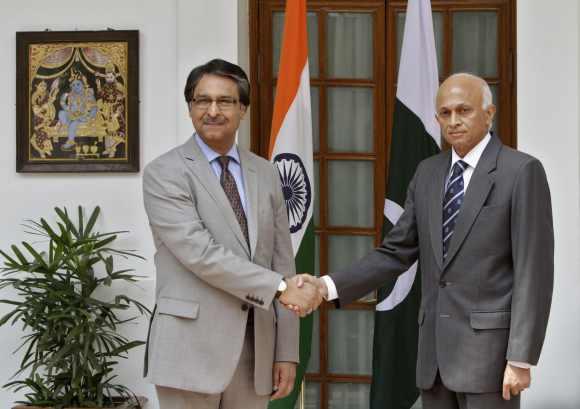
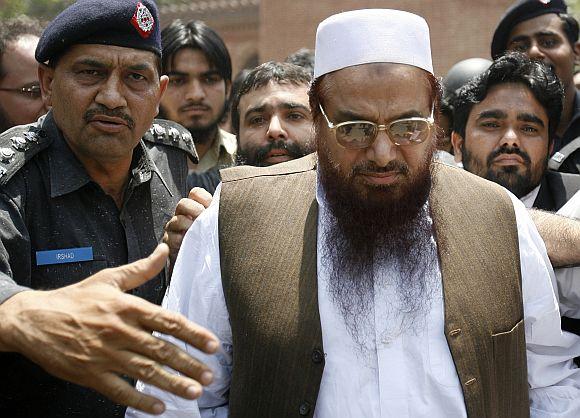
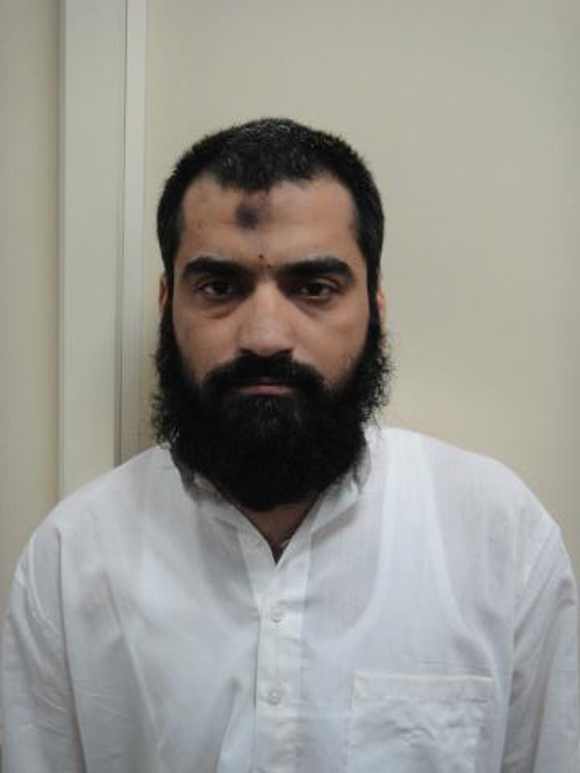
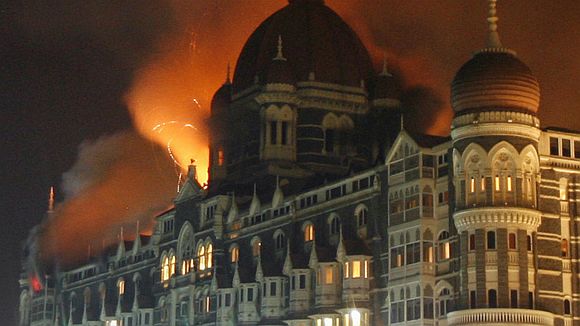
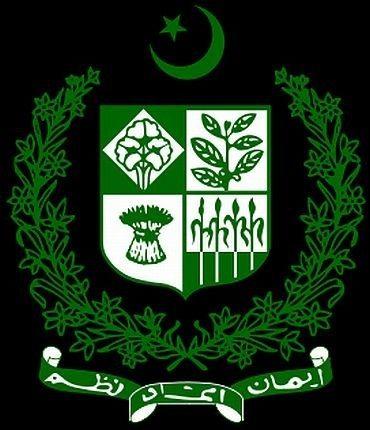
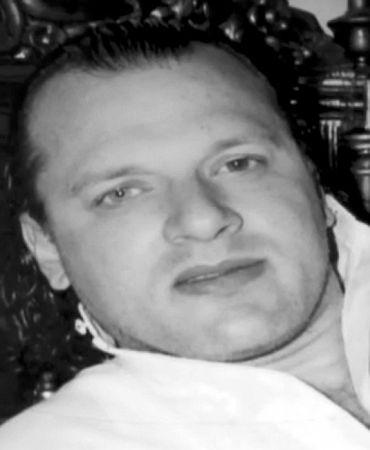
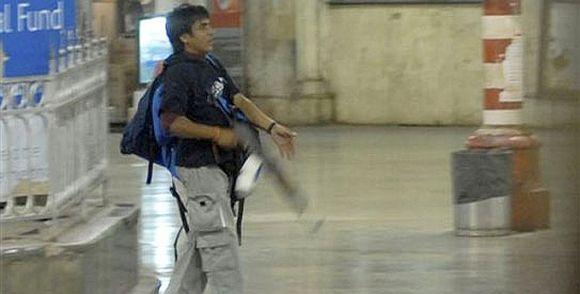
article